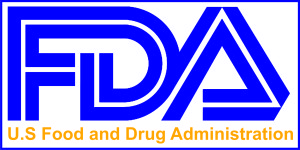This article was written by Anumeha Karnatak of NLS Bangalore while she was interning with iPleaders.
The US Food and Drug Administration (USFDA) has launched a clampdown on Indian drug and pharmaceutical manufacturers not complying with the Good Manufacturing Practices (GMPs). These GMPs are general guidelines concerned with the manufacture and licensing of pharmaceutical products and are enforced by the USFDA. The agency has come down heavily on certain drug manufacturing units thanks to the FDA Safety and Innovation Act passed last year, which mandates the FDA to inspect both the domestic and the foreign drug manufacturing facilities. Warning letters have been served to many Indian companies, in addition to imposition of bans and penalties that has resulted in a deep slump in the prices of shares of such companies. Shortage in availability of low-priced generic drugs has also been reported.
In January 2012, a consent decree was issued against Ranbaxy. The decree contains, inter alia, necessary provisions in order to ensure compliance with the standard manufacturing practices or the GMPs. Recently in January, action was taken against Ranbaxy’s Toansa facility. Some of the violations that the facility has been accused of, include failure to retest raw material, intermediate goods and finished Active Pharmaceautical Ingredients (APIs) after these items showed fundamental defects during the first testing; and consequent failure to report those defects. Under the decree issued, Ranbaxy is prohibited from distributing in the US the pharmaceutical products manufactured using API from Toansa; manufacturing API at its Toansa facility for FDA regulated products; exporting API from Toansa to the US for any purpose; and supplying API from Toansa to other firms, including other facilities of Ranbaxy that make products for American consumers. Ranbaxy is now required to hire a third-party expert to carefully and thoroughly inspect the facility and submit a report to the USFDA certifying that the material used and methods involved in production conform to the GMPs. Other Ranbaxy facilities against which similar decrees have been issued in the past include those in Poanta Sahib, Dewas and Mohali. Similarly, an import alert has been imposed on Wockhordt Ltd.’s Chikalthana facility. Such an alert results in detention of goods at the dock if they fail to conform to certain norms, in this case the GMPs. Other firms that have been served notices include Surat-based Amrutam Life Care that allegedly indulged in illegal sale of drugs in the form of dietary supplements and ayurvedic medicines used for curing diabetes. According to the USFDA, the firm used certain ‘unapproved’ APIs in manufacturing different products.
The Indian government seems to have learnt a big lesson from sudden increase in the number of drug manufacturing companies facing severe actions by the USFDA in cases involving non-compliance with the GMPs. The Drug Controller General of India, inspired by the US story, is contemplating over initiating such a system of checks and balances. “If foreign regulators can make surprise checks on Indian pharma companies, we can do the same for both domestic as well as foreign drug makers”, said GN Singh, the Drug Controller General of India. We hope that in time to come, India is able to emulate the same level of vigilance as showed by the US.
 Serato DJ Crack 2025Serato DJ PRO Crack
Serato DJ Crack 2025Serato DJ PRO Crack









 Allow notifications
Allow notifications


